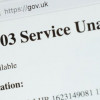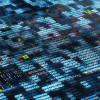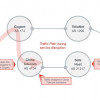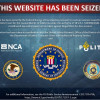Hacking made simple from Asiaweek Limited
You'd be amazed at what you can find out there in other people's computers: confessions, obsessions and other personal matters. The best part is, snooping is perfectly legal, because Napster taught the world how to share
Hackers have long enjoyed the thrill of rifling through other people's computer hard drives. Now we can all have a go. Last week, using the same marvelous technology that powers music-swapping service Napster, I unearthed material from strangers that I'm quite sure they would rather I didn't go public with...
Intimate love-letters. Correspondence between two U.S. senators. Credit reports, personal photos, and a poignant missive from a child thanking someone for buying his prize pig at a U.S. agricultural fair ("I hope you like the meat. I like bacon best.").
I didn't need to learn the black art of electronic intrusion to get at these purloined gems. I just acquired some software that allowed me to download files stored on the machines of members of an online community called Morpheus.
Since Napster, PC owners have been yoking their computers together into what are known as peer-to-peer, or P2P, networks. These online communities, which include Gnutella and iMesh, encourage people to share all kinds of files. They use a pretty simple system.
Unlike the Web as we know it, P2P networks don't require dotcom intermediaries such as Hotmail and Yahoo! to aggregate information and direct traffic. Users establish direct connections between one another's machines.
Although Napster has been castrated by the U.S. courts (record companies had a little problem with people sharing music in violation of copyright law), some Net pundits still claim P2P is going to radically change the way we work, play, shop and communicate.
Some day, they say, any kind of information that can be digitized -- software, movies, games, photos, to name a few -- will be available over file-sharing networks. A lot of it already is. Morpheus users are illegally swapping all sorts of material, including music, pirated software, digital videos of TV shows and entire movies such as geek fave Austin Powers.
Think of Morpheus as an electronic version of a 1960s hippie commune, where nobody needed money because everything was community property. Quite a bit of the 18,000 gigabytes of searchable data on Morpheus can only be described as personal digital compost, information of no possible interest to anyone.
That's because, through thoughtlessness or sheer vanity, some users are sharing all their data, instead of designating only certain files for public consumption.That's how, without crashing through any firewalls or sneaking through security holes, I was able to dislodge love letters, an e-mail from a contrite student who violated frat-house rules ("I know that not wearing the pledge shirt is my fault. I messed up and now I have to pay the consequences"), and a photo of a star-struck young man posing with actor Robert Downey Jr.
I felt a frisson -- and disbelief -- that I was able to poke around in the prosaic claptrap of other people's lives with such ease.
The feeling turned to unease as I tapped the machine of a banker in Illinois. We'll call him Frank, but I know his real name, his address, phone number and employment history. I have his r sum . Frank brought work home from the office. I was able to download customer credit reports, loan applications, and copies of letters warning depositors that they had overdrawn their checking accounts. Frank is a busy guy.And a careless one.
I started to send him a warning that confidential financial information was leaking out of his hard drive. Before I could, my cover was blown. While downloading random documents from other Morpheus members, one of the authors sent me a cranky message: "Why are u downloading this stuff?" I panicked and logged off, like a schoolboy caught peeking in his big sister's diary.I should have replied: "Why are u sharing this stuff?" Why would anybody?
With Napster, at least people swapped something of value -- that's why the service got sued. But I'm not sure that P2P is the Net's next wave. It's fun for virtual voyeurs. But if you exclude copyrighted material, there isn't a lot of data left that's worth sharing with the rest of the world.
People are unlikely to be impressed that your pig is delicious
Copyright 2001 Asiaweek Limited
Corp.
May 25, 2001
BYLINE: STUART WHITMORE









































































